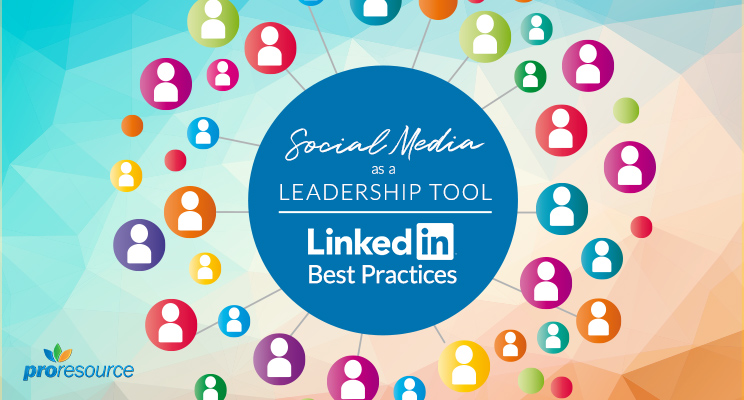In business, we’re always thinking about what’s next: What are our targets for the next quarter? What’s the next move in my career? And what decisions and actions need to be made to get us where we want to go? No matter the answer, building a strong online presence helps. But as a leader, you need to think about social media differently from marketers who are designing campaigns, sellers who are prospecting, and customer service reps who are responding to issues. You want to consider how social media can bring you leverage in managing your team, as well as the many ways it can help you advance in your career and support your personal goals:
- Nurture Your Employees Employees value public kudos more than private praise. With social media, you allow a wider audience to appreciate the achievements of your team. The congratulations make your employees look good, which also reflects your strength as a leader.
- Align Your Team Your employees trust you, believe in you, and follow your lead — and your brand and reputation can ultimately have a massive effect on every aspect of your business. Whether you’re navigating your way through a time of crisis or trying to get your team to focus on one common vision, you can use social media to get everyone moving in the right direction.
- Recruit Top Talent The job market is tight, with more competition for top candidates than ever before. One way to gain an advantage is to make your leadership style more visible. By letting people see your management philosophy, the culture you’ve created, and the way you lead your team, you can attract people who are the best fit for your organization.
- Raise Your Profile Would your team benefit from you taking on more speaking engagements? Or becoming a go-to source for the media? A higher profile in your industry can make it easier to attract ideal clients, partners, and employees. Plus, you create relationships that are valuable to your career.
- Advocate for Causes Social advocacy may or may not be important to you. If it is, knowing how to leverage social media gives you considerable power. You can attract attention to, create awareness of, and raise money for organizations and causes that matter to you.
Balancing Corporate with Personal Many executives struggle to find the balance between promoting their business and advancing their own career. The answer is: You can — and should — use social media for both.
- Tell your story in a way that showcases your company, achievements, and goals, while highlighting the experience and skills that you want to use as you grow.
- Build your network so it includes people who could be useful in the future, as well as those who are important now.
- Make it a habit to post blogs, videos, and articles that allow people to see what you bring to the table — share your insights, philosophy, and lessons learned.
Best Practices for Leaders Now that you know how social media can take your online presence to the next level, it’s time to focus on what steps to take to make it happen. In our new ebook, Social Media as a Leadership Tool: LinkedIn Best Practices, we share expert advice to help you:
- Build your leadership brand
- Establish trust
- Move people to action
The ebook features strategic takeaways and simple tips for leaders who want to start using social media. Download your free copy of the Social Media as a Leadership Tool: LinkedIn Best Practices ebook today!

